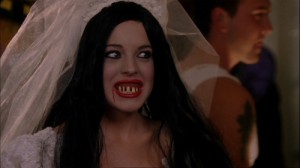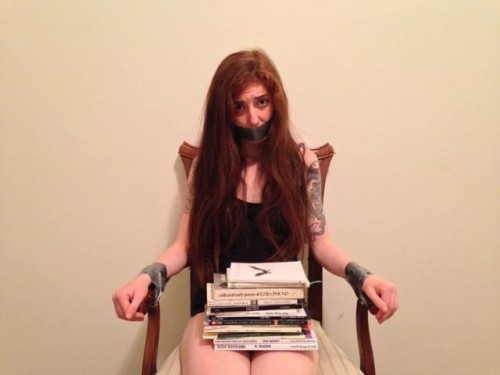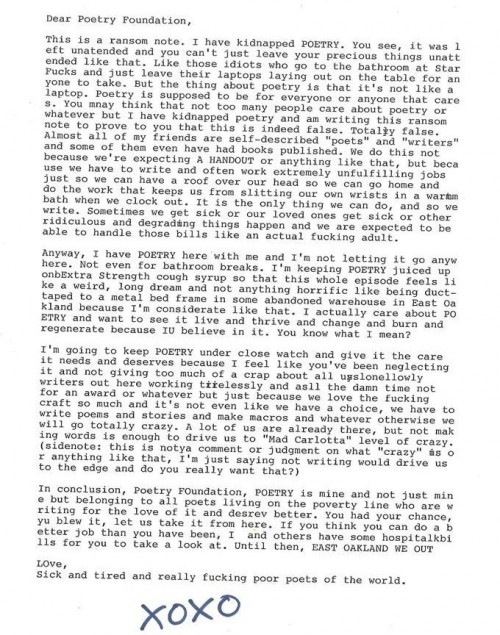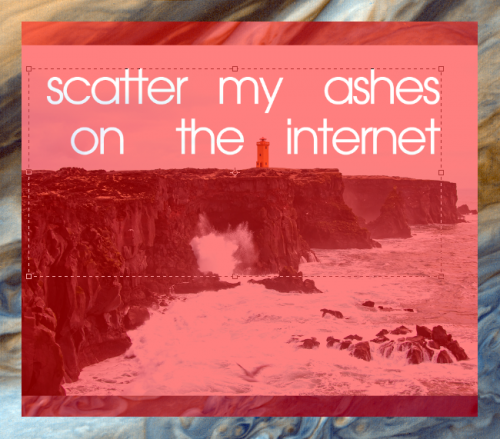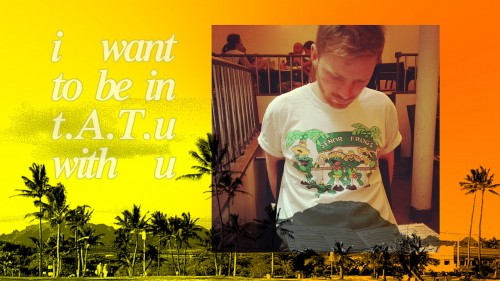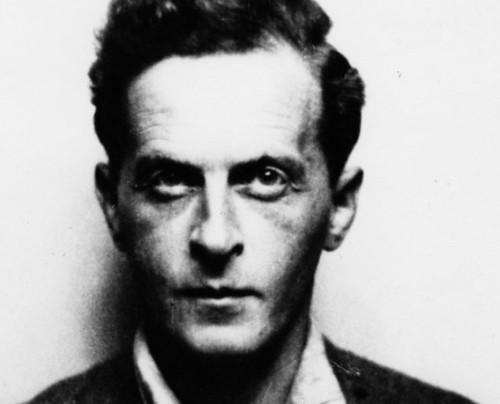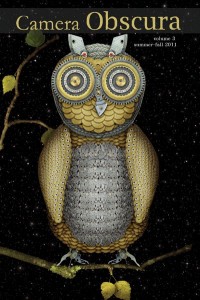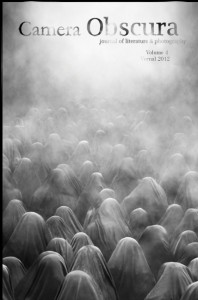here’s an excerpt from an update on the Facebook Page created to help gather support of Sandra Simonds’ call for the Poetry Foundation to do more to help poets in need:
“This afternoon Jenny Gropp Hess participated in a conference call with Elizabeth Burke-Dain, the Poetry Foundation’s Media and Marketing Director, and Ydalmi Noriega, the Special Assistant to President Robert Polito. Burke-Dain and Noriega communicated that the letter and petition introduced a real need for the Foundation to change and refine some of its processes, such as figuring out how to better support programs like Poets in Need and (more…)
A LOT OF READS, *IF* YOU WANT THEM
Happy Halloween, if you care!
I am going to a party for a magazine tonight. I am very excited, I think. When I described what my expectations for the party are to a friend, I simply said: “It will be very Internet.” So, I am not too sure what magazine parties are like. Do websites throw them? (When is the annual HTMLG party, Blake?)
You know who else is really into the internets right now? The Pynchon. Proof: Bleeding Edge. (Yawn, last month’s news, you know and I am sorry!!) But here, two good things on last month’s news:
Christian Lorentzen’s “In the Cybersweatshop”-Featuring delicious intro, and the incredible revelation my favorite gross/amazing dive-bar is joked about in the book (the in/famous Welcome to the Johnsons of $2 PBRs).
Joshua Cohen’s “First Family, Second Life”-the Lorentzen piece addresses the prominent role of paranoia to extreme effects in the novel. In a similar tone, Cohen recognizes the pivotal role of chance as a narrative mechanism in the book: it seems like the paranoia almost yields meaning, when chance is investigated.
Apparently, the internet is our generation’s opium, too. And it is making us dumb. Which reminds me, avoid the film Gravity, it is awful. (1/2 self-promotional, sorry!!)
You know what is NOT awful, besides “The X-files?” The soap-operaish tv-show Scandal. I think I even figured out why I like it: the key romance is “like emotional abuse.” Though my personal favorite is the comedic genius of Cyrus, which is SOO internet. It just feels amazing to watch Kerry Washington be big culturally after being a sidekick to Julia Stiles in a 90s dance movie about the struggles of whiteness. (Julia Stiles is that girl from the vodka ads, btw.)
The beauty of today, some claim, is that we are consuming a lot of trash critically or knowingly. I certainly agree, to an extent, but I certainly do not fiscally support books that are catering to that very gross internety quality. (“It shouldn’t be about the book but the money you can make from the book,” said Ruby-Strauss’s boss, Jennifer Bergstrom.)
Recently, I was talking to my friend who is going to the magazine party with me about non-internet greatness. So let us now praise famous men who are worth it, and talk about the possibility of getting a tattoo in honor of James Agee, which we actually did-sorry mom! Or let’s just embrace the art of fucking up, and think about how to do it beautifully.
Read this epistolographic piece if you might approve of my Agee tattoo. It is very good.
The interesting thing about the internet is the notion of “information” we have broadly reached. Is our understanding of “history” too skewed and subjective? Whether it (the “information”/”history”) matters (or not) and why it matters (paranoia? chance?) seems to be the key theme of all these reads, but they are only here *if* you want them.
The way people handle information defines them. Look at Paul de Man, reconsider him. Things are culturally slippery, sure, but will you buy Jenna Jameson’s new book, which she didn’t even write?

October 26th, 2013 / 8:36 pm
The NYTimes is starting a series about independent poetry publishers. The first interview is with Copper Canyon.
Over at a mock Poetry Foundation Jim Behrle’s chimed in about the Kill List: his being upset about it, among other things, as well as his attempts to contact the publisher(s) to see if they’d “comment on any efforts they made to fact check the poem?”
I mean, really? Really? And I’m with Mark Johnson 1000 literal (ha ha) % when he says that Behrle’s piece is “so embarrassing.”
And how embarrassing, also, the way in which so many others have reacted to this Kill List. And how embarrassing, also, that CAConrad’s heaped abuse on Mark for speaking up in the poem’s defense, comparing (after other insults) Mark’s “stupidity” to the “plaque on very filthy teeth.”
And how embarrassing (but not surprising) that Conrad’s little drones let him get away with shit like this.
This Kill List’s turned out to be a great litmus test, indeed. Blah, blah.
Erin Lyndal Martin’s Response to the Anonymous Letter Addressed to Sandra Simonds in Response to Her Open Letter to The Poetry Foundation
Dear Buzz Poet,
This is an open letter in response to your letter addressing Sandra Simonds’ open letter to the Poetry Foundation.
One basic fact missing from your letter is that you seem to forget that poetry is work: “The difference between poets and the general public is that some of us, like you, Sandra, are fortunate enough to have an audience and a platform to reach them. In today’s rocky economic climate, one governed by debt and political deficit, I do not think it is in the best interest of your audience or the poetry community to model such irresponsible behavior in asking for a financial handout from the Poetry Foundation to support the poets you hold in such romanticized esteem.” Simonds has an audience and platform, mostly from within the literary community, because she has worked hard to build those connections through her work and social networking. Much of the work associated with poetry is thankless and unpaid; Simonds’ audience includes many of her peers who face her same financial reality. They may put in hours editing literary magazines that don’t make a profit, or they may write countless unpaid book reviews in an attempt to garner support and audiences for other poets. They publicize and promote poetry. Is it, indeed, a “handout” when one is asking to receive support from a foundation for forwarding the same work as that foundation? The Poetry Foundation’s website says that they are “committed to a vigorous presence for poetry in our culture.” Is Simonds, who writes, teaches, and reviews contemporary poetry not furthering the same agenda?
One question that lingers for many poets who founder without the support of the Poetry Foundation or similar arts organizations is what those organizations do with their money if not support poets. In President John Barr’s 2011 Year-in-Review letter posted on the foundation’s website (no similar letter for 2012 seems to be available), Barr is directly evasive: “Not all of the ‘hard metal’ that nurtures and contains the poetic energy at the Foundation is visible to the naked eye. The strategic plan, the annual forty-page operating budget, managing the endowment.” So why not make it visible to the naked eye? Why not publish the budget or the strategic plan? And why is the latest Audited Financial Statement READ MORE >
Interview with Christine Lee Zilka and Jennifer Derilo of the Kartika Review
I’ve always been curious about the darkroom where literary magazines come together. This is a series of interviews engaging, talking, and sometimes annoying editors about their magazines. How did they come about, what do they hate about editing, and what do they love most about it?
This is the third in the series and I talked with Fiction Editor, Christine Lee Zilka, and Creative Nonfiction editor, Jennifer Derilo. Their about page has the following description: “Kartika Review is a national literary arts magazine that publishes Asian Pacific Islander American fiction, poetry, creative non-fiction, and art. Kartika Review serves the Asian Pacific Islander American (APIA) community and those involved with Diasporic Asian and Pacific Islander-inspired literature. We scout for compelling APIA creative writing and artwork to present to the public at large. Our editors actively solicit contributions from established virtuosos in our community in hopes their works here will inspire the next generation of virtuosos. Kartika also promotes emerging writers and artists we foresee to be the future powerhouses of their craft. Ultimately, Kartika strives to create a literary forum that caters to and celebrates the wordsmiths of the Asian Diaspora.”
What’s always drawn me to the review is their focus on great stories. The APIA experience is incredibly diverse and the Kartika Review pushes the boundaries of what constitutes APIA literature. The settings may differ and so may some of the sentiments of the narrators, but at the core, the emotional resonance transcends any differences. The tales, poetry, essays, and imagery form a unique flotilla of art that is as portable as it is relatable. I hopped on board with the two editors and what followed was an organic and fun trek through the editorial rivers of the review.
***
As a brief bio and introduction to Christine (CLZ) and Jennifer (JD):

Christine Lee Zilka is the Fiction Editor at KARTIKA REVIEW. Her work has appeared in journals and anthologies such as ZYZZYVA, GUERNICA, VERBSAP, HYPHEN, and MEN UNDRESSED. She has a novel in progress.
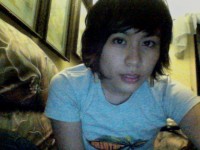
Jennifer Derilo is the Creative Nonfiction editor at Kartika Review. She has a memoir in progress. She often has nightmares about zombies. And abandoned predicate parts.
***
PTL: When and how did you first get involved with Kartika Review?
CLZ: I subbed a short story for consideration to Kartika in early 2008–and I got an email from Sunny Woan, our Founding Editor, saying she loved the piece and wanted to know if I would be interested in becoming Kartika’s Fiction Editor (the previous Fiction Editors departed after Kartika’s second issue). I told her yes! It was my call whether or not to have the piece published; I’m not a big proponent of editors publishing their own work at the litmag for which they work, so I withdrew the piece. The rest is history. I found a passion project in Kartika Review and a fantastic friend in Sunny. And recently, that story just got accepted for publication in another litmag. I owe a lot to that story.
JD: Christine and I were in the MFA program at Mills, but she was in the cohort ahead of me. I first met her when she was the TA for a teaching pedagogy class during my first semester in 2006. While she was an excellent TA, she also coaxed me out of my shell. I started to see her as a big sister type who had the best advice about classes, professors, the program itself, and eventually writing. We kept in touch after we both graduated (I kept going to her for advice!), and then sometime in 2008, Christine asked me to submit something to KR, but in true Jenn Derilo fashion, I never did. And then in 2009, she asked me to join because the CNF editor before me was moving onto other things. I’m sorry for all that backstory about my friendship with Christine, but if I didn’t initially glom onto her (ok…that’s not supposed to sound as creepy, stalker-ish, aggressive as it might), I don’t know that I would ever have been exposed to KR. I was such a writing/literary n00b when I started Mills, and I certainly knew nothing about APIA literature. But she talked about Kartika with such passion, and I was so impressed with the work they were doing, I couldn’t not join. I was supremely honored.
CZ: Jenn is modest. She’s an awesome writer. And has done amazing things as an editor at Kartika.
JD: Aw, shucks. Thank you. I’m lucky to be on an editorial board with multi-talented women of color. And I can’t stress that enough: women of color.
PTL: Christine, I really liked it when you said in regards to your editorial selections: “I often pick pieces by Asian Americans that aren’t API-centric. There are no rules, and Naomi Williams breaks them with brilliance.” What are some works that you both think exemplify Asian Pacific Islander American (APIA) literature, and how did those works affect and influence you?
CLZ: Twenty years ago, this question would have had a more clear cut answer. I would probably have said Maxine Hong Kingston’s WOMAN WARRIOR or Chang-rae Lee’s NATIVE SPEAKER. To that end, I’m motivated both as a writer and as an editor to broaden APIA literature. I’m happy to say there’s no single work that stands out to me, anymore. And I’m also happy that I’m a gatekeeper who gets to have a hand in diversifying the pool. I’m in front of a verrrry small gate, but it’s a gate, nonetheless.
JD: While I know this question is directed at Christine, I can’t help jumping in and agreeing with her, especially given that my knowledge of APIA literature was limited before joining KR. I even knew little about the APIA cannon. But what we do at KR is different. I do feel like we’re “diversifying the pool”, such as including the work of emerging writers alongside interviews with household names. We aren’t only publishing APIA writers who engage with APIA themes. I think Christine nails it when she says, “I’m happy to say that there’s no single work that stands out to me, anymore.” I mean, wow. What a brave discovery to voice! This is not to say that no submissions stand out because, clearly, we publish those pieces shake us. What’s important about that statement is that no one work encapsulates, defines, pigeonholes APIA literature. Rather each work broadens this scope.
PTL: I love the definition of “Kartika” as mentioned on the site: “In Vajrayana (or Tibetan) Buddhist tradition, the kartika, a crescent-shaped knife, symbolizes the cutting away of ignorance and superficiality, with the hopes that it will lead to enlightenment.” What are some themes and elements you both look for in the selections you make for short stories and non-fiction essays?
JD: I don’t know if this is cliche, but I’m attracted to creative nonfiction that surprises me. Even if submissions are about common themes, if the approach to language, structure, or voice is undeniably fresh or risky, I quickly gravitate toward them. It’s difficult to pinpoint exactly what floors me. The best way to understand my madness is to read our back issues starting with #6, which is, of course, when I joined.
CLZ: When I’m looking through the slushpile, pieces tend to blur into each other—so I too, am looking for something different. I’m looking for stories that hit something out of the ballpark, be it concept, structure, language, or ultimately, story. What haven’t I seen before?
…………Crispin Best………….
***
I am very pleased that Crispin Best is my 4th U.K. Spotlight. I’ve enjoyed just about everything I’ve seen or read of his. I am, simply put, a real fan. His tweets are a Ferrari. His website‘s a garage full of Lamborghini (samples of his excellent writing). And his Tumblr is one snazzy racing car after another. (what’s with all the sports car references?? — well, it’s between me and Crispin, eh!).
Crispin’s answers to my questions (my questions steeped in cutesy, showoff puffery and fluff) surprised me a bit like tender marble footsteps fit to baptize or decapitate a king and which knock (knock-knock) like a bronze Beowulf boat against his online personas which are so heroically abrasive (“hi, assholes“- etc), lovable, zany, magnetic, full of swagger and energy.
but, blah, blah, anyways,
.. here’s our interview, which you’d better enjoy! (assholes!)
***
Rauan: which would you rather be called: a “digital Ashbery” or a “Tumblr Catullus” (nothing i’m guessing with “Larkin” in it)? and what truth would there be in either ? (and plz elaborate like we’re at a party in Brooklyn, leaning against a fridge. or between two trees on a summery day in Oxford. Or in a pit. Anything.).
Crispin: i do know an old story about don barthelme telling his writers-blocked student to drink a bottle of red wine and spend all night writing imitations of ashbery, phoning at 4am to check up on them, and how that helped the student. i feel a strong, sad warmth towards don barthelme at all times, but particularly when i think about that story. i like the sound of a tumblr catullus. that seems appealing. mostly i’m happy to be alive. it’s hard and it’s hell but it’s good.
[ the Senor Frogs T-Shirt, fyi, was a shrewd $2 purchase in Tokyo ]
***
RK: beyond your excellent crude and funny persona(s) you seem able to find and show in your heart many beautiful READ MORE >
Writing That Makes You Feel Like You’re Being Groomed
***
When John Ebersole reads work he terms “Grocery Store Poetry” (GSP – which includes also, for John, Linda Pastan, Billy Collins and, most immediately, present-day Thomas Lux) he says “I also get the sick feeling like I’m being groomed.” This quote comes from a little Q and A I recently did with John because when I read his review of the new Thomas Lux book (you can read it here on HTMLGIANT) I was struck by (hello, Paul Cunningham) how upset, how disturbed John seemed to be. And this reminded me of how I feel when I read certain people. Disturbed. And sometimes, for sure also, like I’m being groomed. (shiver, shiver).
This is particularly the case when I read Whitman and experience not just the great POETRY but also the feeling of a clammy arm slipping around me over and over in a cheap movie theater, of a pale tongue in my ear, of a breathy voice trying to massage my entire being into submission. Nice, easy and compliant. And that’s creepy, yeah. And creepy, also, to think (and know) that while I’m reading Whitman and experiencing the tremendous virtuosity of imagination and spirit that a part of him’s masturbating in the row behind me.
But, you know what, it’s ok, because it’s Whitman and I accept the fact that he’s grooming me. That he wants and needs me to surrender to his voice, his work, his divine right (yeah, he thought he was a new Jesus for America). But, for Christ’s Sake, we’re talking now about writing like late-career Thomas Lux!
***
Rauan: I believe you’re suggesting that “Grocery Store Poetry” written by Lux, Pastan, Collins, etc, isn’t attractive and vital because even though the world’s always been in turmoil “the way we apprehend that turmoil has changed and changed dramatically.” And you’re suggesting then I think that we need more a riskier, stronger sort of poetry (a poetry of derangement?) because “globalization and the relentless whiplashes of information rearrange us.” Your thoughts on this please?
John: Wittgenstein once wrote – I’m fucking kidding. I’m less READ MORE >
October 12th, 2013 / 1:12 pm
Interview with M.E. Parker of the Camera Obscura Journal of Literature & Photography
I’ve always been curious about the darkroom where literary magazines come together. This is a series of interviews engaging, talking, and sometimes annoying editors about their magazines. How did they come about, what do they hate about editing, and what do they love most about it? This is the second in the series and I talked with M.E. Parker of the Camera Obscura Journal of Literature & Photography. It’s by far one of the most beautiful literary magazines around with riveting photography that goes hand-in-hand with some amazing voices. Seriously, the covers kick ass and the stories rip you open from inside and your guts are hanging out and you smile, “Cheese,” for the camera because you want to capture that brief moment where inspiration bisects into awe and mesmerized nausea from having been split open. A brief description on their site states they are: “an independent literary journal and internet haunt featuring contemporary literary fiction & photography. Contributors include established, as well as, emerging writers and photographers.”
As a brief bio and introduction to M.E. Parker:
M.E. Parker is a writer, an editor, web designer, and a carpenter who imagines a world of wooden computers with leather bound keyboards. His short fiction has come up for air in numerous print publications and Internet haunts. He is the founding Editor of Camera Obscura Journal of Literature & Photography. www.meparker.com
***
PTL: When and how did you first come up with the idea of starting the Camera Obscura Journal of Literature and Photography?
M.E. Parker: As is often the case with grand notions conceived in the mental stupor of Belgian Monk brewed beer, I first envisioned a glorious, indescribable tome, pared the following day by the limits of funds, time, and logistics with a few basic principles to guide it. Mostly I wanted a writer and artist friendly venue where, not only contributors, but submitters as well, really do come first, and the stress of the submission process gives way to levity. And in the process my hope was that we create a great community and journal and have fun on the journey (we are still the only journal with a big red “Bug the Editor” button on the withdraw/submit page).
As the editor, I assembled a team not unlike selecting a crew for a heist:
Me – Captain and story wrangler.
Shane Oshetski – can deconstruct, analyze and ostracize any short story.
Tim Horvath – erudite lover of language and Borges, who might wear tweed as an old man.
Meredith Doench – appreciates variety, enjoys the flaws, offsets Shane.
Kate – my wife and incredible photographer, master negotiator, foiler of plots.
PTL: The photography in the magazine is just incredible. What goes into the selection/curating process for the photographs? Are most/all of them chosen from the Competition?
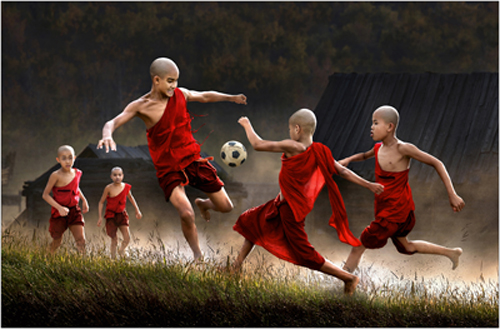
M.E. Parker: The photography does come from the competition for a variety of reasons. Rather than selecting artwork to showcase on the basis of appeal or to augment the writing as an accessory, I wanted a journal where the photography underwent the same editorial scrutiny and selection criteria as the writing without regard for prevailing aesthetic.

